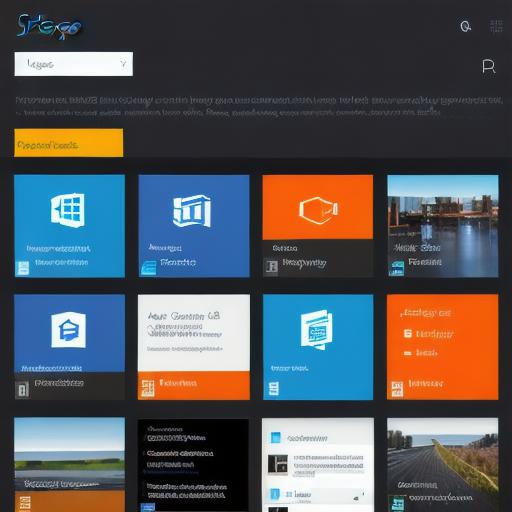
Marketing analysis is a crucial process for businesses of all sizes, and it involves collecting, analyzing, and interpreting data to understand the performance of marketing efforts. In today’s digital age, there are numerous tools available that can help businesses track their marketing campaigns, measure ROI, and gain insights into customer behavior. In this article, we will explore some of the best marketing analysis tools in 2021, including their features, benefits, and use cases.
SEO Optimization: Maximizing Your Online Visibility
Before diving into the specific tools, it’s important to understand the importance of search engine optimization (SEO) in marketing analysis. SEO is the practice of optimizing your website content to improve its ranking on search engines like Google. By improving your website’s visibility, you can attract more traffic, generate leads, and ultimately increase sales. Here are some key factors that contribute to a successful SEO strategy:
- Keywords: Identifying relevant keywords is essential for SEO. These are the phrases or terms that potential customers use when searching for products or services. By incorporating these keywords into your website’s content, you can improve your search engine ranking and attract more targeted traffic.
- Content quality: High-quality content that provides value to your audience is a key factor in SEO. This includes creating blog posts, videos, infographics, and other types of content that engage and educate your target market.
- Mobile optimization: With more people using mobile devices to browse the internet, it’s essential that your website is optimized for mobile devices. This includes ensuring that your website loads quickly, is easy to navigate, and provides a seamless user experience across all devices.
- Backlinks: Backlinks from reputable websites can boost your search engine ranking and improve your overall authority in your industry. To attract backlinks, you should focus on creating high-quality content that others will want to link to, as well as actively reaching out to other websites and bloggers in your niche to request links.
Now that we have covered the basics of SEO, let’s take a look at some of the best marketing analysis tools available in 2021.
Google Analytics: The Power of Data
Google Analytics is one of the most popular and widely used marketing analysis tools in the world. It provides comprehensive data on website traffic, user behavior, and conversion rates. With Google Analytics, you can track your website’s performance over time, identify areas for improvement, and make data-driven decisions to optimize your marketing campaigns.
Some of the key features of Google Analytics include:
- Real-time reporting: Google Analytics provides real-time reporting on website traffic, bounce rates, and other key metrics. This allows you to quickly identify trends and adjust your marketing strategy accordingly.
- Audience segmentation: With Google Analytics, you can segment your audience based on demographics, interests, behavior, and more. This enables you to create targeted marketing campaigns that resonate with specific groups of customers.
- Goal tracking: Google Analytics allows you to set up goals for your website, such as increasing conversions or generating more revenue. By tracking these goals, you can measure the success of your marketing campaigns and make informed decisions about where to allocate your budget.
- Integration with other tools: Google Analytics integrates seamlessly with a wide range of marketing tools, including AdWords, SEO tools, and social media platforms. This allows you to gather data from multiple sources and create a comprehensive view of your marketing performance.
Overall, Google Analytics is a powerful tool for businesses looking to gain insights into their website traffic, user behavior, and conversion rates. By using Google Analytics, you can make data-driven decisions that drive business growth and improve your bottom line.
Marketing Automation Tools: Streamlining Your Marketing Efforts
Marketing automation tools are designed to help businesses streamline their marketing efforts by automating repetitive tasks, such as email campaigns, social media posts, and lead generation. These tools can save time and resources, allowing businesses to focus on more strategic initiatives. Here are some of the best marketing automation tools in 2021:
- HubSpot: HubSpot is a comprehensive marketing, sales, and service platform that provides a wide range of features for businesses of all sizes. With HubSpot, you can create email campaigns, manage social media accounts, track leads, and analyze website traffic. HubSpot also integrates with other tools, such as Google Analytics, AdWords, and Salesforce.
- Marketo: Marketo is a powerful marketing automation platform that provides advanced analytics, lead scoring, and nurturing capabilities. With Marketo, you can create personalized campaigns that target specific segments of your audience, track lead progress through the sales funnel, and measure the success of your marketing efforts with detailed reports.
- SquareTrade: SquareTrade is a marketing automation tool specifically designed for B2B businesses. With SquareTrade, you can create targeted email campaigns, manage social media accounts, and track leads across multiple channels. SquareTrade also provides advanced analytics and reporting capabilities to help you measure the success of your marketing efforts.
- Pardot: Pardot is a marketing automation platform that provides advanced lead scoring, nurturing, and analytics capabilities. With Pardot, you can create personalized email campaigns, track website activity, and manage social media accounts. Pardot also integrates with other Salesforce products, including CRM, Marketing Cloud, and Analytics Cloud.
Overall, marketing automation tools are an essential part of any modern marketing strategy. By automating repetitive tasks and focusing on more strategic initiatives, businesses can save time and resources while improving their marketing performance.
A PLACE FOR A PICTURE #2
Social Media Analysis Tools: Understanding Your Audience
Social media has become a critical component of modern marketing, and social media analysis tools are designed to help businesses understand their audience’s behavior and preferences on social media platforms. Here are some of the best social media analysis tools in 2021:
- Hootsuite Insights: Hootsuite Insights is a social media analytics platform that provides real-time data on social media engagement, sentiment, and trends. With Hootsuite Insights, you can monitor your brand’s social media presence, track competitors, and analyze customer behavior. Hootsuite Insights also integrates with other social media platforms, including Twitter, Facebook, Instagram, and LinkedIn.
- Sprout Social: Sprout Social is a comprehensive social media management platform that provides analytics, scheduling, and publishing capabilities. With Sprout Social, you can monitor your brand’s social media presence, analyze engagement metrics, and create personalized content that resonates with your audience. Sprout Social also integrates with other social media platforms, including Twitter, Facebook, Instagram, and LinkedIn.
- Mention: Mention is a social media monitoring tool that provides real-time data on brand mentions, sentiment, and engagement metrics. With Mention, you can monitor your brand’s social media presence, track competitors, and analyze customer behavior. Mention also integrates with other social media platforms, including Twitter, Facebook, Instagram, and LinkedIn.
- Awario: Awario is a social media monitoring tool that provides real-time data on brand mentions, sentiment, and engagement metrics. With Awario, you can monitor your brand’s social media presence, track competitors, and analyze customer behavior. Awario also integrates with other social media platforms, including Twitter, Facebook, Instagram, and LinkedIn.
Overall, social media analysis tools are an essential part of any modern marketing strategy. By understanding your audience’s behavior and preferences on social media platforms, businesses can create more effective marketing campaigns that drive engagement and conversions.
Email Marketing Tools: Building Strong Relationships with Your Audience
Email marketing is a critical component of modern marketing, and email marketing tools are designed to help businesses build strong relationships with their audience through personalized, targeted messaging. Here are some of the best email marketing tools in 2021:
- Mailchimp: Mailchimp is a comprehensive email marketing platform that provides a wide range of features for businesses of all sizes. With Mailchimp, you can create and send email campaigns, manage your email list, and track engagement metrics. Mailchimp also integrates with other marketing tools, such as Google Analytics, AdWords, and Shopify.
- Campaign Monitor: Campaign Monitor is a powerful email marketing platform that provides advanced automation, personalization, and analytics capabilities. With Campaign Monitor, you can create personalized email campaigns that target specific segments of your audience, track engagement metrics, and measure the success of your marketing efforts with detailed reports.
- ActiveCampaign: ActiveCampaign is a comprehensive email marketing platform that provides advanced automation, personalization, and analytics capabilities. With ActiveCampaign, you can create personalized email campaigns that target specific segments of your audience, track engagement metrics, and measure the success of your marketing efforts with detailed reports.
- Sendinblue: Sendinblue is a comprehensive email marketing platform that provides advanced automation, personalization, and analytics capabilities. With Sendinblue, you can create personalized email campaigns that target specific segments of your audience, track engagement metrics, and measure the success of your marketing efforts with detailed reports.
Overall, email marketing tools are an essential part of any modern marketing strategy. By building strong relationships with your audience through personalized, targeted messaging, businesses can improve customer engagement and drive conversions.
Summary: Embracing Technology to Drive Business Growth
In conclusion, technology plays a critical role in modern marketing, providing businesses with the tools they need to gain insights into their target audience, streamline their marketing efforts, and drive business growth. From website analytics to social media monitoring, email marketing, and marketing automation, there are countless tools available to help businesses succeed in today’s competitive marketplace. By embracing technology and leveraging these tools effectively, businesses can improve customer engagement, increase conversions, and ultimately achieve their goals.




